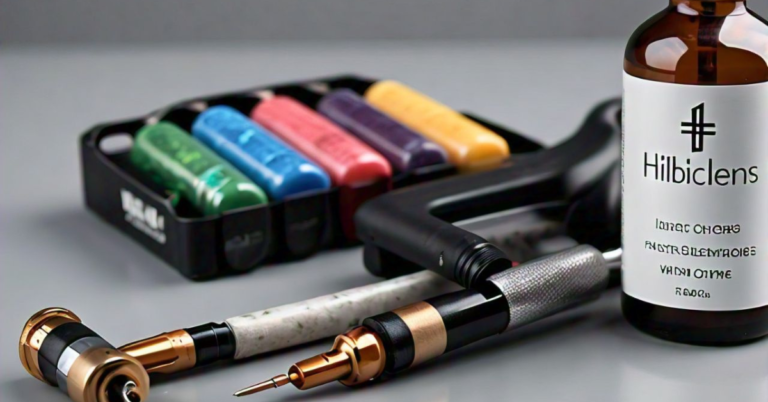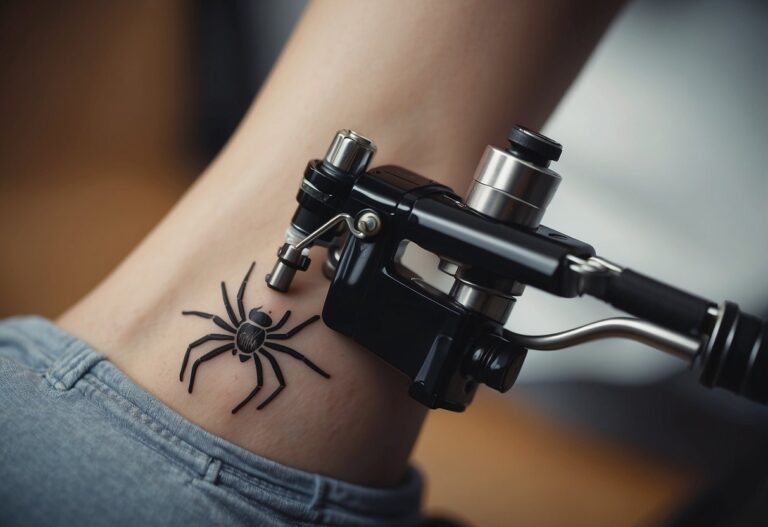Can You Have a Tattoo Before Surgery? What You Need to Know
Thinking about getting a tattoo but have surgery planned soon? It’s a question many people face. Tattoos are a great way to express yourself, but they come with risks, especially when you have surgery on the horizon. Getting a tattoo right before surgery is generally not recommended. The body needs time to heal, and an unhealed tattoo can lead to complications.
Imagine you’re recovering from surgery, but also dealing with the healing process of a new tattoo. This could double your discomfort and increase the risk of infections and other complications. Surgeons need clear, uninfected skin to work on, and tattoos can sometimes interfere with this.
You’re probably eager to showcase your new ink, but waiting until after your surgery might be the best choice. This way, you can avoid the risk of infection and ensure both your tattoo and surgical site heal properly.
Key Takeaways
- Tattoos before surgery can complicate healing and increase infection risks.
- Surgeons require clear, uninfected skin for the best surgical outcomes.
- Waiting until after surgery for a tattoo is often the safer option.
Understanding Tattoos and Surgery
Getting a tattoo before surgery can impact your health and the outcome of the procedure. This section explores how tattoos influence surgeries and what you should consider before getting inked when surgery is on the horizon.
The Impact of Tattoos on Surgical Procedures
Tattoos can complicate surgical procedures in several ways. One key concern is infection. A new tattoo can open your skin and create a site for bacteria to enter. If an infection develops, it can slow the healing process of both the tattoo and the surgery site.
Another issue is inflammation. Fresh tattoos often cause swelling and irritation. During surgery, this can make it harder for doctors to accurately locate the surgical site. This is especially important in procedures like plastic surgery or cancer detection.
Tattoos can also leave scars. If your surgical incision intersects with a tattoo, the design might become distorted as it heals, and the resulting scar could look unusual. This impact on your skin tissues can affect both the appearance and the health outcomes of the surgery.
Factors to Consider When Getting a Tattoo Before Surgery
Timing is crucial. Getting a tattoo at least a few months before surgery is advisable. This allows ample time for the skin to heal and reduces the risk of infection or allergic reactions. Your immune system works hard to heal tattoos, so giving it enough time to rest before a major surgical procedure is important.
Think about the location. Avoid placing tattoos near the surgical site. This precaution helps prevent interference with the surgery and reduces complications like skin irritation during the procedure.
Consider your health and safety. If you’re planning major surgery, it might be best to wait until after recovery to get a tattoo. This precaution ensures that both your surgery and your tattoo heal properly without adding undue stress to your body.
By understanding these factors, you can make informed decisions about tattoos and surgery, maintaining both your health and the integrity of your body art.
Pre-Surgery Tattoo Considerations and Care
When planning for surgery with a new tattoo, you must consider healing times and potential complications. Proper care is essential to minimize infection risk and ensure your surgery proceeds smoothly.
Preoperative Advice for Tattooed Skin
Getting a tattoo before surgery requires careful thought. Heal time is crucial. Your skin needs about 2-3 weeks to recover from a tattoo. During this period, your skin may be sore, red, and sensitive. Avoiding any alcohol or blood-thinning medications is important, as they can delay healing and increase bleeding risks.
Choosing a reputable tattoo artist ensures better hygiene and less risk of infections, which could complicate your surgery. If your tattoo is near the incision site, it might interfere with surgical accuracy, especially in procedures like breast augmentation or liposuction. It’s also wise to inform your healthcare provider about your new tattoo, as they might need to adjust your preoperative or postoperative care.
Post-Surgery Tattoo Management
After your surgery, managing your tattooed skin is important. Follow your healthcare provider’s aftercare instructions diligently. Avoid rubbing or applying pressure on the tattooed area to prevent skin irritation. Use prescribed antibiotics, if recommended, to reduce infection risks.
Be extra cautious with skin infections. If you notice unusual redness, swelling, or pain, contact your doctor immediately. Proper tattoo care includes gentle cleaning and moisturizing without irritating the skin. If your surgery area overlaps your tattoo, there might be tattoo distortion, where the ink shifts or fades, so discuss this with your surgeon.
Take care to minimize exposure to harsh environments or substances that may aggravate your skin’s healing post-surgery. Patience and careful management can help ensure both your tattoo and surgical healing processes go smoothly.







